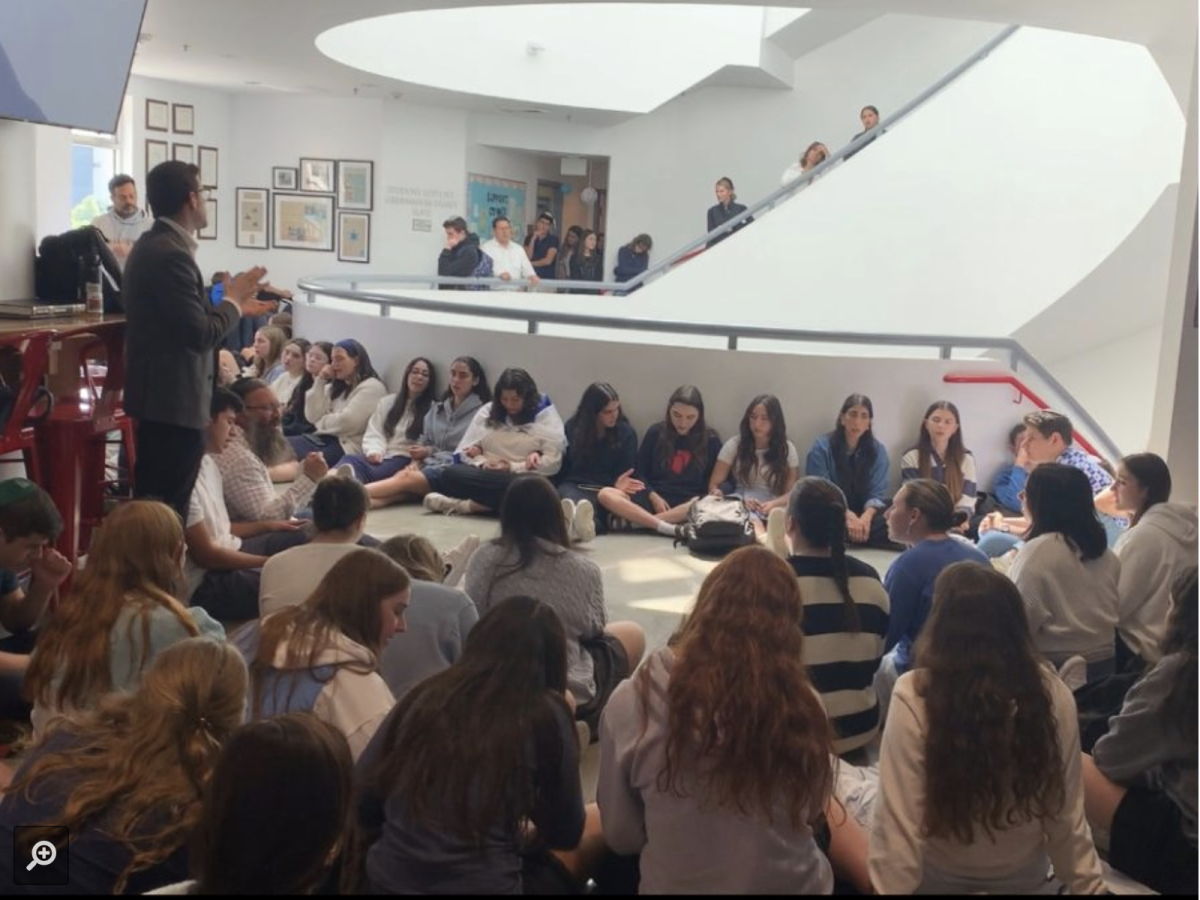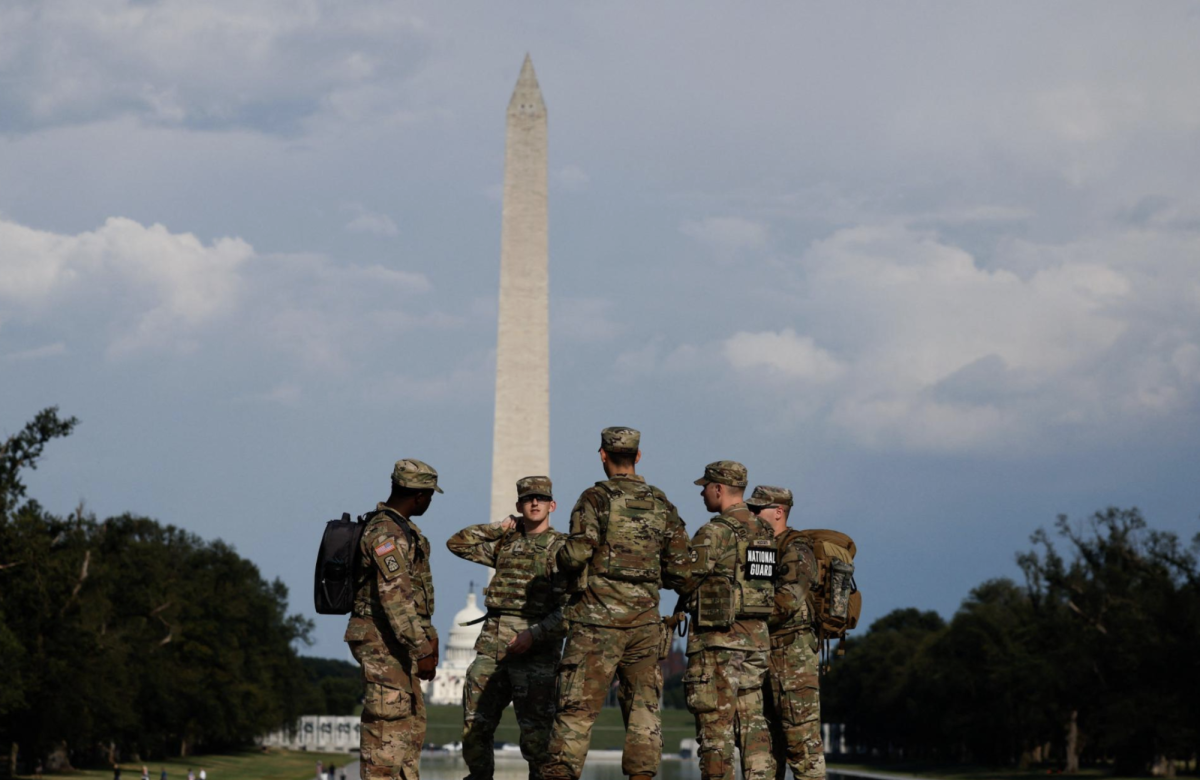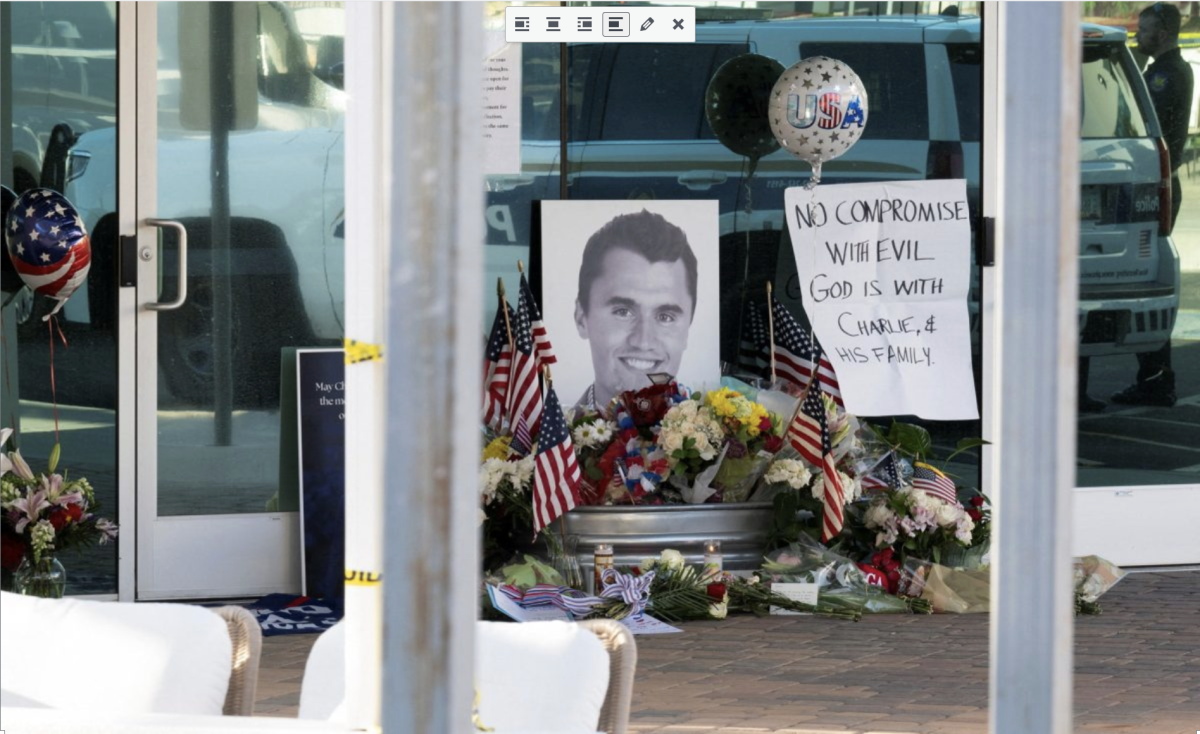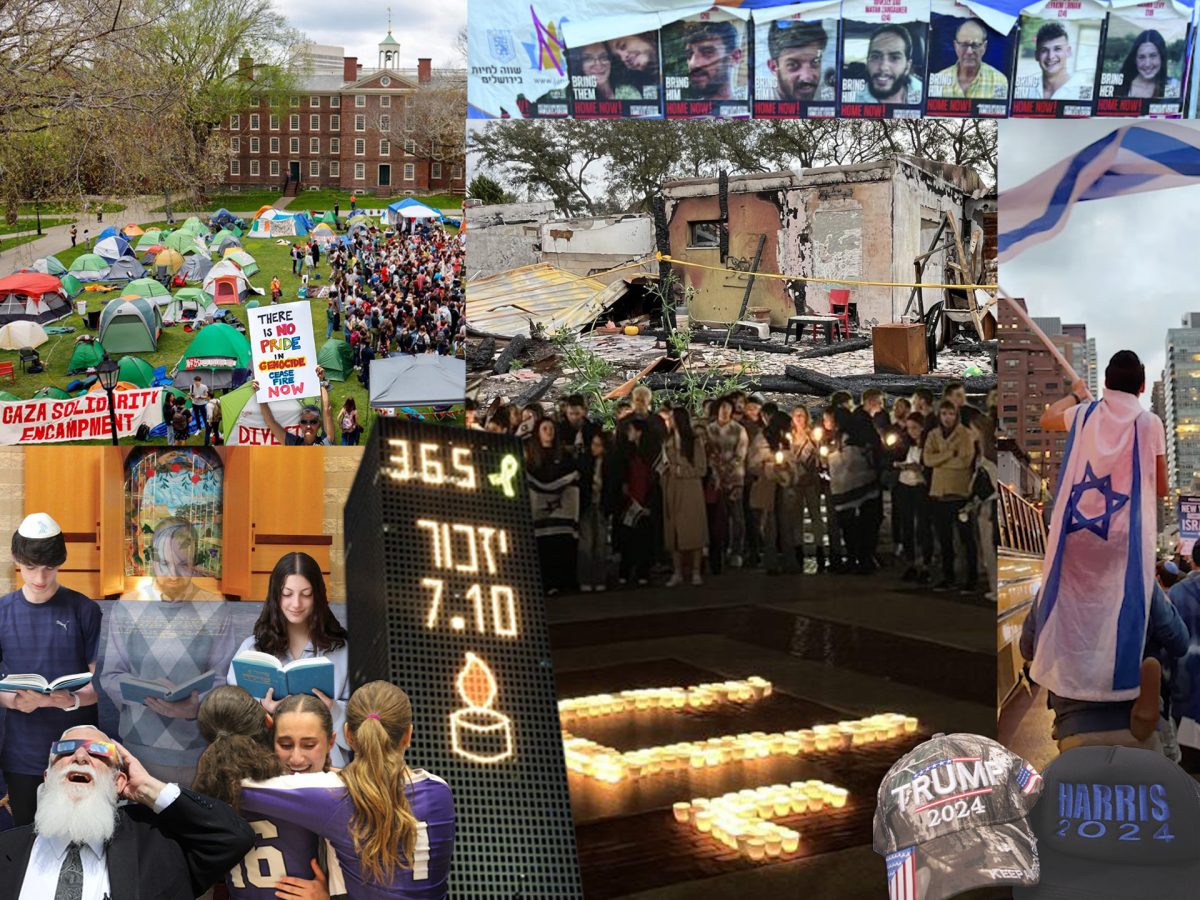On the first day of school after a two-week-long Sukkot break, Shalhevet students and faculty gathered in the gym as one on Oct. 10 for davening and an assembly to acknowledge and process the tragedies and acts of terrorism committed against Israeli civilians by Hamas just three days before.
When Head of school Rabbi David Block addressed Shalhevet students and faculty following an emotional tefillah, or prayer service, he said he was unsure how to articulate his thoughts on the tragedy that has in some way affected a family member or friend of almost every member of the Shalhevet community.
“I don’t really know what to say to you all,” said Rabbi Block. “There really are no words.”
However, what Rabbi Block did say was that there is strength in maintaining routine during difficult periods. He told students that they should try their best to – mindfully – continue their daily commitments and activities.
“I think part of what we have to do is just continue with our lives like we normally would,” he said.
But before davening began, Judaic Studies teacher Rabbi Ari Schwarzberg told students that after Hamas’s attack – which media reports say have left 1,300 Israelis dead and 3,227 injured as of Oct. 13 – some things would need to be different, including the way students conduct themselves during prayer.
Rabbi Schwarzberg said that the Jewish people are currently in an eit tzarah, a time of trouble, and pleaded with students to participate and not engage in side conversations.
“We should only hear the sounds of tefilla throughout davening,” Rabbi Schwarzberg said.
Students listened, and did not talk.
In addition, many prayers typically said individually were sung by students and Judiac faculty out loud.
“I think everyone understood the message and we had a beautiful davening,” said Rabbi Schwarzberg in a text message later in the day.
Another thing that should change in students’ routine, according to Rabbi Block, is social media usage. He warned students of graphic and scarring videos and images of Israeli hostages being tortured that Hamas has released to the internet, encouraging students to delete social media apps for their mental wellbeing.
To conclude the assembly, the school sang Hatikvah, which was followed by a series of prayers and psalms directed towards the hostages, the murdered, the soldiers and the State of Israel.
They also sang “Acheinu,” a song about Jewish unity. The main lyric of the song is Acheinu kol beit Yisrael, which means “our brethren, the entire Jewish people.”
At noon, the whole school gathered on the second floor stairway lobby for a kumzitz. Once students and teachers sat down on the floor, they immediately began to sing.
Some of the songs sung were “Vehi She’amda,” “Hamalach Hago’el” and “Eilecha (Hashem Ekra).”. The same serious tone of the assembly that morning was present at the kumzitz.
The communal singing, known at Shalhevet for being high spirited and concluding with dance, was emotional and somber.
“This should not be singing,” Rabbi Block said, “This should be davening.”
In between songs, Dean of Student Life Dr. Jonathan Revanshenaz and Rabbi Eli Broner addressed the group.
Dr. Ravanshenas spoke of the many Israelis who had lost their children to the attacks of Hamas, and wondered at his own good fortune having his children at home.
“What did I do to deserve this?” Dr. Ravanshenas said.
Rabbi Eli Broner, Dean of Ninth Grade, said that even in the face of tragedies and loss, Jews must be b’simcha – with happiness – as he prepared everyone for a rally in support of Israel which the administration bussed students to in Westwood later in the day.
Editor-In-Chief Tali Liebenthal, Outside News Editor Sophie Katz, and Torah Editor Ari Elad contributed to this story.
This story was originally published in The Boiling Point on October 13, 2023.


















